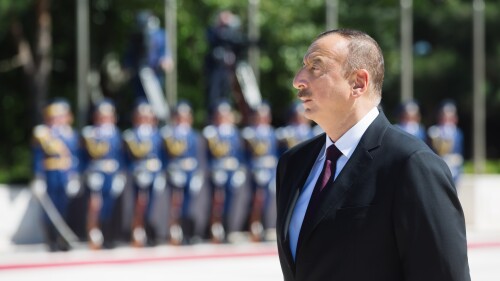Recognising that British courts have become a prime destination for “libel tourists”, the House of Lords has recently established a government panel to look into the possibility of amending its laws to make it tougher for foreigners to bring defamation suits in Britain. The UK is notorious for its plaintiff-friendly libel laws which have been accused of being “contemptuous of free speech” and making a “mockery of British justice” and because they silence writers through expensive litigation.
But even as Britain attempts to prevent frivolous libel suits, the battle continues in the US. American courts are being utilised by radical Islamic groups to stifle writers through “lawfare” – the use of law as a weapon of warfare – a tactic that has had a “chilling effect” on free speech. In contrast to the British laws, American libel law favours defendants. However, plaintiffs in the US have learned to sue their critics for defamation, not with the intent to win the case, but with the hope of imposing an unaffordably high cost on criticism of their actions.
A recent case is most instructive: the American Civil Liberties Union sued the government-funded Tarek ibn Ziyad academy for allegedly promoting Islam – a violation of church-state separation. TIZA counter-sued for libel over the ACLU’s statement that it is a “theocratic school”. On 9 December 2009 the court dismissed TIZA’s counterclaim because, as a public school, it is required to show that the ACLU’s statement was false and that it was also made with actual malice or a reckless disregard for the truth, which it was unable to do.
How, in TIZA’s estimation, would a libel lawsuit against the ACLU – one of the strongest defenders of Muslim civil liberties in the wake of 9/11 – have had any chance of succeeding? The fact is that this case is part of a pattern of defamation lawsuits brought to silence critics of controversial Islamic organisations due to increased scrutiny post-9/11. The strategy, which has included actions such as libel tourism in the UK, often works.
Though most defamation claims are deemed baseless by US courts, the enormous cost a lawsuit imposes and the smear of bigotry it achieves has stifled legitimate discussion of some suspect behaviour. Litigation – and the threat of litigation – has prevented concerned citizens from speaking freely and stopped the publication of important information.
In 2003, Hussam Ayloush, executive director of the southern California office of the Council on American-Islamic Relations, sued the National Review for publishing an allegedly defamatory statement relating to a CAIR-sponsored event. Though NR retracted the statement, Ayloush pursued the suit, aiming, in NR’s view, to intimidate and punish the magazine. The court threw out the case for lack of merit, but NR still paid more than $50,000 in legal fees.
That is a fraction of what a libel defence can cost. In 2005, the Islamic Society of Boston sued the Boston Herald and nearly a dozen others for defamation. The ISB was building New England’s largest Islamic centre and the defendants were raising legitimate questions about the ISB’s connections to terrorist financing and hate speech. Though the ISB dropped the lawsuit – just weeks before some of their leaders were to give sworn testimony – the defendants incurred close to $2m in legal costs.
The ISB lawsuit had even more damaging consequences. Howie Carr, a columnist for the Boston Herald, said he “know[s] the ISB lawsuit has had a chilling effect on journalists in Boston”. An analysis of the articles printed in the Herald from summer 2003 to winter 2007 supports Carr’s statement. Between summer 2003 and winter 2005, the Herald published 19 articles mentioning the ISB’s alleged connection with radical Islamic groups. After the lawsuit began in 2005 until winter 2007, the paper whitewashed its reporting and no longer mentioned radicalism in the 20 articles that covered the ISB’s activities during that period.
Before 2001, there were five documented defamation cases relating to radical Islamic groups. After 2001, that number rose sharply. Though roughly 20 cases have been identified, the extent of the problem is difficult to determine since these cases are typically settled out of court. Often, the plaintiffs have substantial resources and the defendants cannot afford the legal costs.
A 2004 survey by the American Society of Journalists and Authors found that about 70% of freelance writers earn less than $50,000 annually. It is not surprising then that some would silence themselves, calculating that the personal cost of a lawsuit outweighs the need to inform the public. It is also impossible to know how many threats of a lawsuit have led to self-censorship or inappropriate retractions by writers who fear that their writing, while protected as free speech, will land them in court.
The New York Times, Wall Street Journal, New York Daily News, and Boston Herald have all been sued for libel for reporting about the plaintiffs’ connections to radical Islam. Large newspapers may be financially capable of putting up a defence, but may not want the hassle or expense, even when the truth is on their side. Perhaps most daunting is that the extent of the problem is hidden – one cannot know what editors under pressure deem not suitable to publish.
It seems that the UK is beginning to understand the danger that frivolous libel suits pose to free speech and is, therefore, considering the option to reform its laws to secure this most basic democratic value. But as Britain is trying to thwart libel tourism and stop lawsuits that unjustly attempt to prevent the publication of information, the rise in strategic “chilling effect” litigation is a growing concern in the US. Freedom of speech will continue to suffer as long as lawfare is a threat, and the ultimate loser will not be the media – it will be the public.



